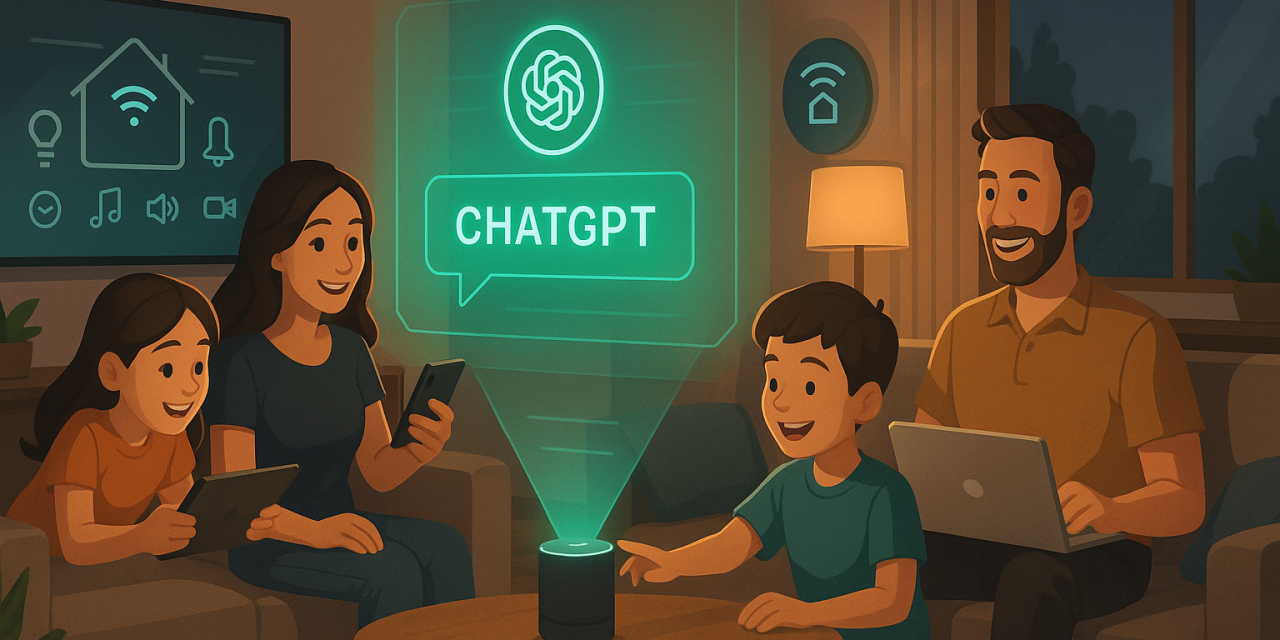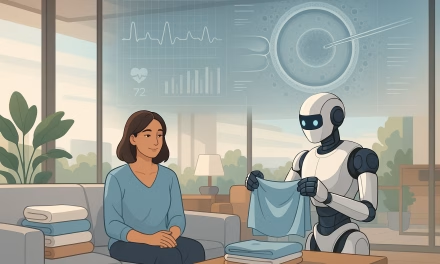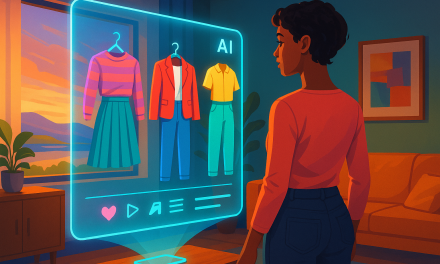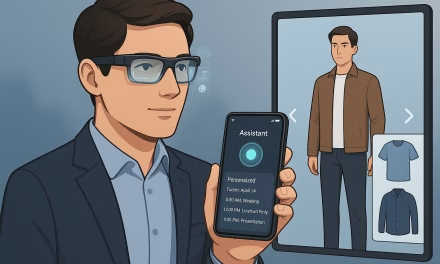# OpenAI’s Vision: ChatGPT as Your Life-Integrated Super Assistant
The future of artificial intelligence in daily life is taking a dramatic leap forward as OpenAI unveils ambitious plans to transform ChatGPT from a conversational AI tool into a comprehensive “super assistant” capable of seamlessly integrating into every aspect of human life. According to leaked strategy documents revealed in early June 2025, the company envisions a revolutionary AI companion that will fundamentally change how people manage their personal and professional lives.
The leaked OpenAI strategy document describes ChatGPT’s evolution into what the company calls a “T-shaped” entity—an AI system with broad capabilities across multiple life contexts combined with deep expertise in specific domains. This super assistant would be capable of managing complex, multi-step tasks ranging from planning elaborate vacations to drafting professional emails, all while maintaining context and continuity across different aspects of a user’s life.
This ambitious vision represents a significant departure from current AI assistant capabilities, which typically operate in isolation and require constant user direction. OpenAI’s super assistant would instead function as a proactive digital companion, anticipating user needs and taking autonomous action to address them. The system would leverage advanced multimodal capabilities, processing text, voice, images, and other data types to provide comprehensive support across various life scenarios.
The timing of this announcement is particularly significant given the current state of the AI assistant market. Google Assistant has achieved remarkable reach, now working with over 10,000 devices across 1,000 brands, demonstrating the massive infrastructure already in place for AI assistant integration. Amazon’s Alexa continues to dominate smart home environments, while various other AI assistants have carved out specialized niches in the rapidly expanding market.
However, OpenAI’s vision goes far beyond the current capabilities of existing AI assistants. While today’s AI helpers excel at simple commands and basic information retrieval, the proposed ChatGPT super assistant would function more like a highly capable personal secretary with deep understanding of individual preferences, goals, and contexts. The system would learn from continuous interaction, becoming more effective and personalized over time.
The leaked documents suggest that OpenAI is also exploring hardware integration possibilities, potentially bringing the super assistant capabilities to dedicated devices or embedding them into existing consumer electronics. This hardware component could provide always-available access to the AI assistant while ensuring privacy and security through local processing capabilities.
Industry experts view this development as part of a broader trend toward more sophisticated AI personal assistants that move beyond simple command execution to become trusted companions managing entire aspects of daily life. The next generation of AI assistants promises deeper contextual intelligence, robust privacy features, seamless continuity across devices, and genuine proactivity in addressing user needs.
The implications of such a comprehensive AI assistant extend far beyond convenience. For busy professionals, a super assistant could dramatically improve productivity by handling routine tasks, managing schedules, and providing intelligent insights based on comprehensive data analysis. For families, the technology could help coordinate complex logistics, manage household operations, and provide personalized recommendations for everything from meal planning to entertainment options.
The evolution toward super assistants also reflects changing consumer expectations about AI technology. Users are increasingly seeking AI tools that understand context, maintain continuity across interactions, and provide value without requiring constant management. The success of current AI assistants in handling simple tasks has created demand for more sophisticated capabilities that can address complex, multi-faceted challenges.
Privacy and security considerations remain paramount in the development of such comprehensive AI assistants. OpenAI’s approach will need to address legitimate concerns about data collection, storage, and usage while providing the deep personalization that makes super assistants valuable. The company’s strategy documents reportedly emphasize the importance of user control and transparency in how the AI assistant accesses and utilizes personal information.
The competitive landscape for AI assistants is intensifying as major technology companies recognize the strategic importance of becoming the primary AI interface for consumers. OpenAI’s super assistant vision positions the company to compete directly with established players like Google and Amazon while potentially leapfrogging their current capabilities through more advanced AI technology.
For consumers, the promise of a life-integrated super assistant represents both tremendous opportunity and significant responsibility. Such powerful AI tools could dramatically enhance quality of life by handling routine tasks, providing intelligent insights, and enabling more efficient use of time and resources. However, users will need to carefully consider how much control they’re comfortable delegating to AI systems and ensure they maintain agency over important life decisions.
The development of super assistants also raises important questions about the future of human-AI interaction. As AI systems become more capable and autonomous, the challenge lies in maintaining appropriate boundaries while maximizing the benefits of AI assistance. The most successful implementations will likely be those that enhance human capabilities rather than replacing human judgment and creativity.
Looking ahead, the realization of OpenAI’s super assistant vision could mark a turning point in the relationship between humans and artificial intelligence. Rather than viewing AI as a tool to be used occasionally, consumers may begin to see AI assistants as constant companions that understand their needs, preferences, and goals. This shift could fundamentally change how people approach everything from daily planning to long-term goal achievement.
The success of this ambitious vision will ultimately depend on OpenAI’s ability to deliver on the technical challenges while addressing the social, ethical, and practical considerations that come with such comprehensive AI integration. If successful, the ChatGPT super assistant could establish a new paradigm for AI-human collaboration that extends far beyond current smart home and mobile assistant capabilities.
As the AI assistant revolution continues to evolve, the companies that can successfully balance capability with responsibility, convenience with privacy, and automation with human agency will likely define the future of how artificial intelligence integrates into daily life. OpenAI’s super assistant vision represents one of the most ambitious attempts yet to achieve this balance while pushing the boundaries of what AI assistants can accomplish.





